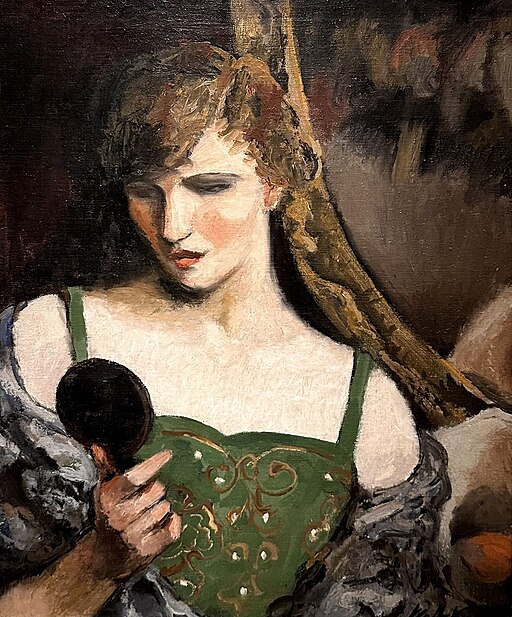
Navigating the cave became more difficult, and the men struggled to move the heavy chest along through the rocks. “How much farther,” muttered one, panting with effort. “More,” replied another. “Easier for those lending only one hand,” said the first, as the leader held the torch with one hand and could only spare the other for the chest. The leader turned angrily, but at just the wrong moment. The cave floor just ahead of them sloped much more steeply down, and as the leader turned he lost his footing. His side of the chest dropped and the corner hit a rock. The man at the other corner of the front lost his grip as well and the front of the chest tilted down over a ledge. The weight of the chest was such that the man holding the back of it was lifted up bodily as the chest tipped, then rolled end over end. The three men were left lying at the top of the slope in the cave while the chest continued rolling, end over end, until they could hear it thud to a stop.
The torch had gone out when it was dropped; the cave was wet in places and their moment of bad luck had directed the burning end into a small pool of water. The darkness was total. The men groaned, but discovered they were not badly injured. With no discussion all three began to feel their way up the slope. Even in the dark they thought by following the incline they might find their way back to the entrance. They groped their way slowly at first, but abandoned caution at the sound, from deeper in the cave, of a deep growl. From something big. “Bear,” gasped one. “That’s no bear,” whispered another, “Too big.” The third man said nothing, but scrambled upward, feeling his way in the dark. There was another growl. Louder, because it was now much closer.
When he emerged from the cave, the fourth man, who was the youngest of them, ran to the cart and started again, heading toward the mountains. The cart was light now, and the horses managed an easy trot when the ground allowed it. The track, faint or not, was long gone — and even if it had been there, the driver was not the same man who had known the way. Worried about the pursuers, he randomly turned into valleys and down ways that he only hoped wouldn’t be dead ends. He kept up as fast a pace as possible until nightfall. By the next midday he hoped he had eluded any pursuit, a hope that turned out to be true. But in losing his pursuers, he had also lost his own way. After several days lost in the foothills he emerged to discover a road — not the King’s Road, this was another he was not familiar with, but it led him to a different village.
He settled in the village, at least for a little while. He had two good horses and a cart, which was more than many owned. He made wooden tools — rakes, pitchforks, hoes — that he traded for food and other goods, and eventually he was accepted as part of the community. He was known for two oddities; he never spoke of his life before coming to the village, and he spent every spare moment off in the foothills, searching for something, it seemed. He never spoke if his search any more than his past, and if he ever found anything among the hills and mountains, no one was the wiser.
Eventually the man married, raised a family, and even became an elder of the village. In the evenings, around the fire in his house, he would sometimes tell tales to his children; tales of the vast war that had raged as far as could be travelled. Some said it had lasted for thirty years. The man’s tales were not those of a soldier in the war, but were about the victims, the damage, the aftermath, and about great treasures looted from castles and cathedrals. The tales the children liked best were about mysteries and hiding places and dragons under the mountains.
When the man was old, he lay in his bed for the last time, surrounded by his children and their children. One little girl, who had been his favorite granddaughter and had loved his stories more than anyone, leaned close to whisper into his hear “Grandfather, all your stories, they were all true, weren’t they?” The man spoke his final word. “Yes.”
